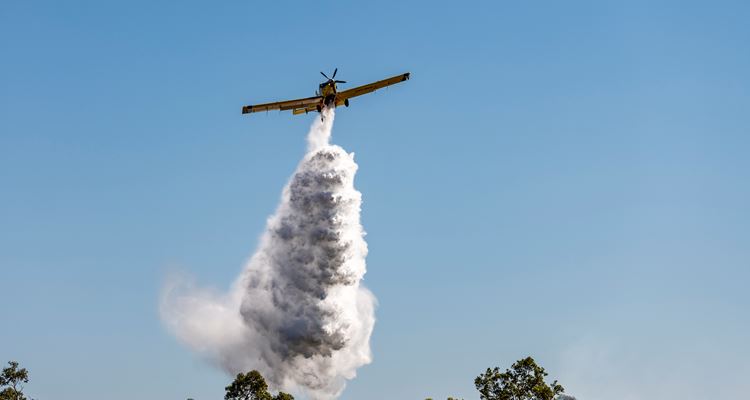Bumper crops protected by aerial firefighting strike teams

Waterbombing aircraft deployed to rural areas helped protect Western Australia’s record-breaking grain harvest with 126 aerial drops during one of the most fire-prone periods for agricultural communities.
Four waterbombers and two air attack supervision aircraft were strategically based at Esperance airfield from late November to early January, and Northam and Narrogin during their respective peak periods, allowing strike teams to be deployed to high-priority fires at short notice.
Over the six-week period, the strike teams responded to 19 crop fires from as far north as Allanooka in the Mid West down to Pink Lake in the Great Southern.
The specialist aircraft completed 126 drops on firegrounds, dropping more than 390,000 litres of water and retardant to suppress flames and prevent fires from spreading.
Fire and Emergency Services Commissioner Darren Klemm AFSM said the aircraft boosted response times across a grain-growing region spanning more than 191,000 square kilometres.
“Each year harvest brings a fire risk, with higher fuel loads increasing the risk of fires escalating to a point where they threaten lives and property,” Commissioner Klemm said.
“With higher crop yields this harvest after a wet winter, we strengthened our response during this high-risk period by strategically basing aircraft in grain-growing regions.
“The strike teams in the air and volunteers on the ground did an outstanding job, bringing fires under control quickly, minimising damage to property and ensuring the safety of the community, a credit to the efficiency and dedication of the crews.”
Initially planned to finish by 15 December, the program was extended to 5 January to coincide with a later-than-usual finish to harvest, which delivered a record-breaking 21 million tonnes worth more than $9 billion to the State’s economy.
The program is funded by the Department of Fire and Emergency Services using the Emergency Services Levy with support from the Department of Biodiversity, Conservation and Attractions and Department of Primary Industries and Regional Development.
Media Contact: DFES Media and Corporate Communications 9395 9543

